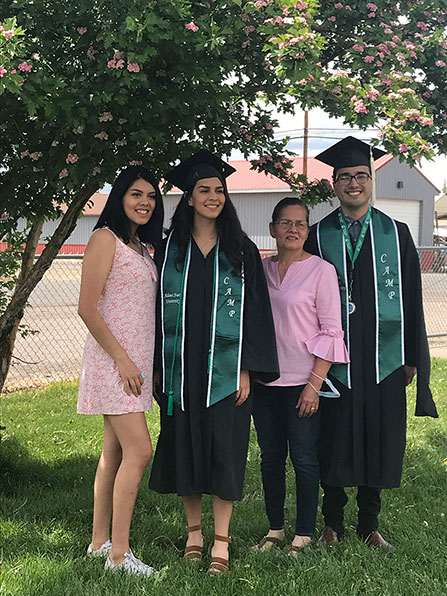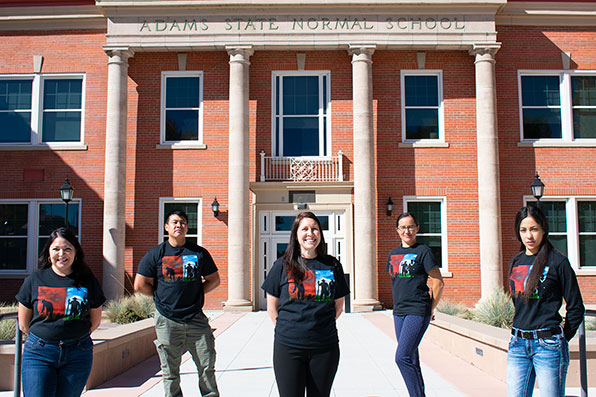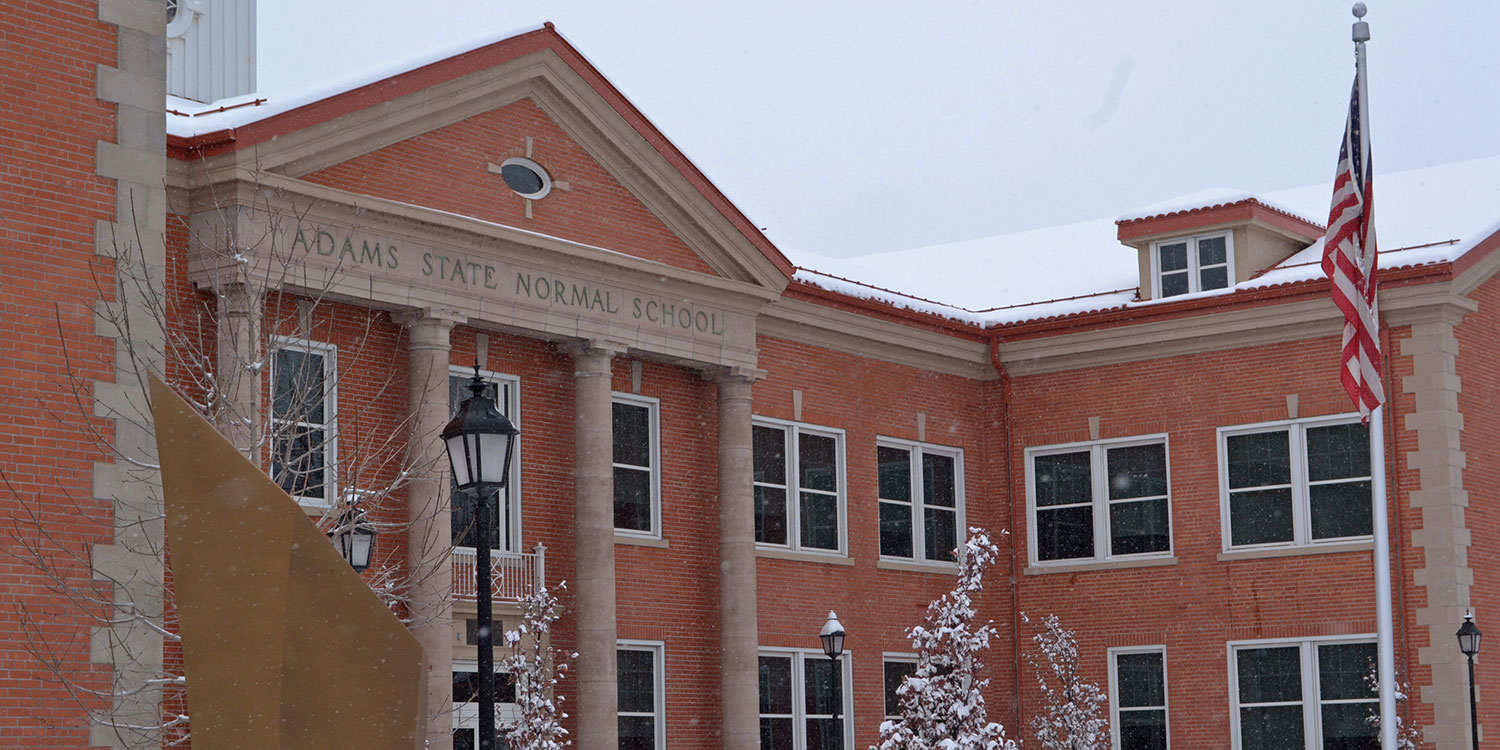By Sarah Kuta
When Alejandro Tovar first moved from Mexico with his mother and siblings to work in the fields in Center, Colorado, he spoke very little English and never thought much about college.
Now, less than six months after graduating from Adams State, he’s helping fellow migrant and seasonal farmwork students achieve a college education — just like he did — with a new job at Salisbury University in Maryland.
Tovar’s transformation occurred largely because of the College Assistance Migrant Program (CAMP) at Adams State, an initiative funded by the U.S. Department of Education’s Office of Migrant Education that seeks to support migrant and seasonal farmworkers and their children.
More specifically, CAMP helps pay for their first year of college. In addition to supporting them financially, the program also provides students with the social, emotional and academic support they need to persist in college, with the overarching goal of helping them earn a degree.

“They believed in me,” said Tovar. “CAMP provides hope to students who are marginalized, that, ‘Yes, you’re college material. Yes, you can graduate.’ Without this program, I would have been lost and maybe within two or three weeks, I would’ve dropped out. The program helped me stay, it provided me those tools that made me successful in my first year and for my whole career.”
Like Tovar, many CAMP participants are the first in their families to attend college. The students and their parents may lack a basic understanding of how college works — everything from applying for financial aid to attending their professors’ office hours. They often speak little or no English. They’ve moved around a lot, which meant switching schools and starting over. Many are immigrants; some are refugees. For many, living in a dorm room is the first time they’ve ever had a private space to call their own. Above all else, they may struggle with self-confidence and feeling like they don’t belong on a college campus.
But with the support of Adams State faculty and staff, migrant and seasonal farmwork students can overcome these and other barriers. The campus supports roughly 30 new first-year students through the CAMP program each year.
“A big part of our mission here at ASU is serving underserved students and providing access to students who may not otherwise be able to attend college,” said Jasmine Camponeschi, project director for CAMP at Adams State. “It really aligns with what we’re all about at ASU. We’re in a small, rural agricultural area and we have a large population of seasonal farmworkers — it just makes sense that we would be providing that support.”
Adams State — and the entire southwestern region of Colorado — has a long history of supporting seasonal and migrant farmworkers and their children. ASU was one of the original four campuses that participated in the new federal CAMP program when it launched in 1972.
ASU’s CAMP program is bolstered by the Migrant Education Program (MEP), another federally funded education initiative that supports migrant children from birth through age 21.
Students may first be identified through the Migrant Education Program, which supports them through high school, then recruited to Adams State to continue their education in college. The Southwest Region Migrant Education Program is located on the Adams State campus, which has forged a strong bridge from high school to college for migrant students in the area.

As students enroll at ASU, campus staffers help them at every step along the way, from registering to classes to securing financial aid. They also connect with the students’ parents, who play an integral role in student success. Students and parents attend a special CAMP orientation that takes place a few days before the start of the fall semester.
Once classes are underway, CAMP students must attend a weekly study session, which often includes guest speakers or workshops on topics like how to write an email or how to ask professors for help. CAMP hosts various cultural events throughout the year, often partnering with other campus groups and offices like the Cultural Awareness and Student Achievement Center (CASA).
“We make sure we give them that sense of belonging and they know they have a place here and that they’re surrounded by people who are cheering them on,” Camponeschi said.
Once students successfully complete their first year at ASU, their CAMP funding ends but they’re invited to continue participating in programming as upperclassmen (and many continue receiving scholarships and other financial aid); six CAMP students are hired back to serve as mentors each year.
This robust community helps students feel connected to the University and to each other, and gives them friendly faces to turn to if they’re ever feeling lost, confused or just need a little extra help.
“Our students understand that once you’re a CAMPer, you’re always a CAMPer,” said Camponeschi.



